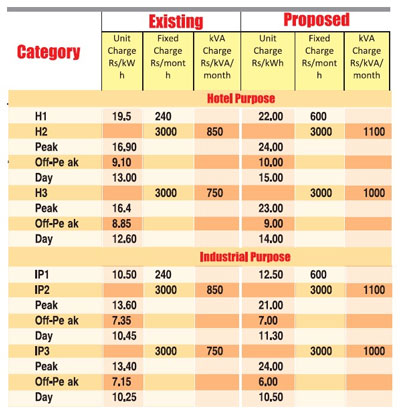08 Apr 2013 - {{hitsCtrl.values.hits}}
 The Hotels Association of Sri Lanka (THASL) has charged the Ceylon Electricity Board (CEB) for singling out the hotels sector and imposing a tariff higher than the normal industry tariff applicable to industrial sector.
The Hotels Association of Sri Lanka (THASL) has charged the Ceylon Electricity Board (CEB) for singling out the hotels sector and imposing a tariff higher than the normal industry tariff applicable to industrial sector. Making oral representations on the proposed tariff hike to the Public Utilities Commission of Sri Lanka (PUCSL), he questioned under what grounds the authorities could consider the hotel sector was immune to electricity tariff hike.
Making oral representations on the proposed tariff hike to the Public Utilities Commission of Sri Lanka (PUCSL), he questioned under what grounds the authorities could consider the hotel sector was immune to electricity tariff hike.
28 Dec 2024 43 minute ago
28 Dec 2024 2 hours ago
28 Dec 2024 5 hours ago
28 Dec 2024 5 hours ago
28 Dec 2024 5 hours ago